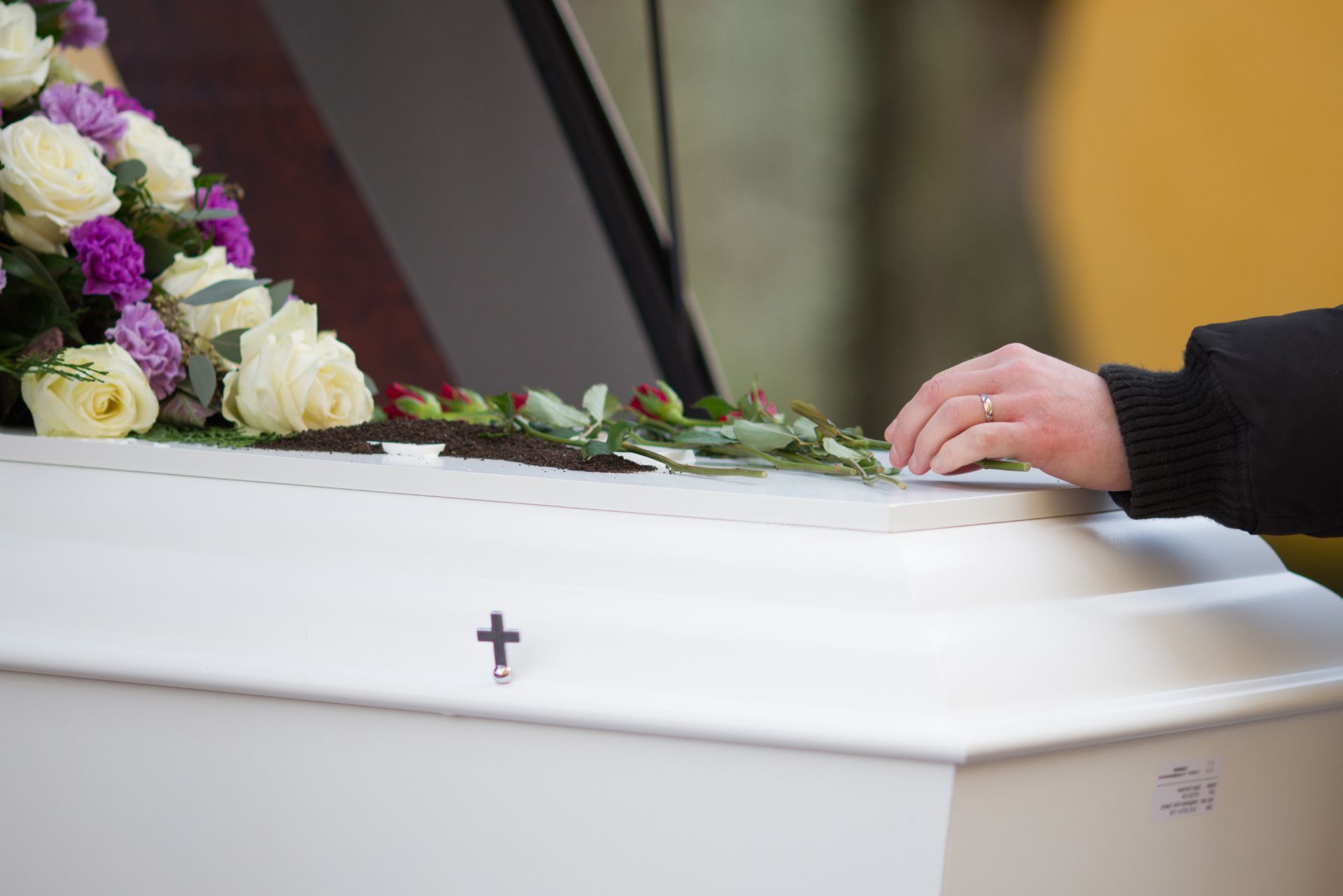Top 3 Recommended Policies

By: Lance Hale
Licensed Commercial Insurance Specialist
425-320-4280
The funeral profession blends compassionate service with highly technical, often regulated activities such as embalming, cremation, and the transport of human remains. Because every step must be performed flawlessly and respectfully, even minor mistakes can lead to lawsuits, regulatory fines, or damage to a hard-earned reputation. Washington State funeral homes face the added complexity of diverse geography—from coastal counties with high flood exposure to rural mountain towns where winter storms can halt operations—influencing both risk and insurance cost. This article explores exactly what owners and managers in the Evergreen State need to know about insuring their funeral homes, from mandatory coverages to smart risk-management techniques. By the end, readers will have a road map for protecting facilities, employees, and the families who rely on them during life’s most delicate moments.
The Unique Risk Landscape for Washington Funeral Homes
In Washington, roughly 550 licensed funeral establishments handle more than 55,000 deaths each year, according to the state’s Department of Health. Those businesses span everything from single-location family firms to multi-branch corporate chains. Yet they share a core set of risks. Washington’s seismic activity—particularly along the Cascadia Subduction Zone—poses a real threat of property damage and service interruption. Coastal communities add wind and flood hazards, while the arid east’s wildfire season can create smoke damage or evacuation orders that disrupt memorial services at a moment’s notice. As a result, carriers underwriting funeral homes in Washington evaluate location-specific perils far more carefully than they might for inland states with milder climates.
Liability exposure is equally nuanced. Families often tour preparation rooms or attend witness cremations, increasing the chance of slip-and-fall events. Washington’s consumer protection laws are strict, holding funeral providers to clear price disclosures and ethical sales practices. Any violation—even an inadvertent omission on a General Price List—can trigger an Attorney General investigation alongside civil lawsuits. Moreover, the state’s wage-and-hour environment is employee-friendly, making wrongful termination or overtime claims more common. Together, these factors create a unique coverage profile that can surprise owners who assume funeral service is “low risk.”
Beyond these immediate risks, funeral homes in Washington must also navigate the complexities of evolving consumer preferences and technological advancements. The rise of green burials and eco-friendly funeral options reflects a growing demand for sustainable practices, which can introduce new operational challenges and liability considerations. Additionally, the increasing use of digital platforms for memorial services, such as live-streaming funerals or creating virtual memorial pages, requires funeral homes to invest in technology and cybersecurity measures to protect sensitive client information. This shift not only impacts traditional service offerings but also necessitates a re-evaluation of insurance coverage to address potential data breaches or service interruptions.
Furthermore, the emotional landscape surrounding death care has become increasingly intricate. As families seek more personalized and meaningful ways to commemorate their loved ones, funeral homes must adapt their services to meet these expectations. This can involve offering unique memorialization options, such as custom video tributes or themed services that reflect the deceased's passions and hobbies. However, with these personalized services comes an increased risk of dissatisfaction and potential disputes, which can lead to claims against the funeral home. Understanding and managing these evolving expectations is crucial for funeral providers in Washington as they strive to maintain their reputations while navigating this complex risk landscape.
Mandatory Insurance Requirements in Washington
While Washington does not impose an industry-specific insurance mandate solely for funeral homes, several statewide regulations effectively make certain coverages non-negotiable. First, the Department of Labor & Industries requires all employers—even those with a single employee—to carry workers’ compensation insurance. Funeral work frequently involves heavy lifting, exposure to biological hazards, and repetitive motion tasks, so claims frequency is higher than many service businesses. Failing to secure workers’ comp can result in stop-work orders and daily penalties.
Second, any funeral home that owns or operates vehicles for removal, transport, or limousine service must comply with Washington’s financial responsibility law, which sets minimum auto liability limits of $25,000 per person and $50,000 per accident for bodily injury, plus $10,000 for property damage. In practice, most professional operators carry at least $1 million in combined single-limit coverage because the statutory minimums would barely cover medical bills from a moderate collision. Finally, if the firm offers preneed services and handles client funds, the Insurance Commissioner’s office may require fidelity bonding or a trust-fund surety bond to protect consumers against fraud or mismanagement.
In addition to these requirements, funeral homes in Washington must also be aware of the potential need for general liability insurance. This coverage protects against claims of bodily injury or property damage that may occur on the premises, such as slip-and-fall accidents or damage to a family’s property during a service. Given the sensitive nature of their work, funeral homes must ensure that they maintain a safe environment for grieving families and visitors, as any incident could lead to significant legal and financial repercussions. Furthermore, many funeral homes opt for additional coverage options, such as professional liability insurance, which can safeguard against claims of negligence or malpractice in the services they provide.
Moreover, as the industry evolves, funeral homes are increasingly adopting technology and online services, which introduces new risks. Cyber liability insurance has become a crucial consideration, especially for businesses that store sensitive client information electronically. This insurance can protect against data breaches and cyberattacks, which can be devastating not only financially but also in terms of reputation. As more families turn to online platforms for arrangements and memorial services, ensuring robust cybersecurity measures and appropriate insurance coverage is essential for funeral homes to thrive in a digital age.
Key Coverage Types to Consider
General Liability Insurance
This foundational policy guards against third-party bodily injury or property damage that occurs on funeral-home premises or as a result of operations. A grieving family member tripping on an uneven walkway, a vase falling and injuring a guest, or water leakage damaging a neighbor’s property can each trigger a claim. Most Washington carriers recommend at least $1 million per occurrence and $2 million aggregate limits, though firms hosting large public events may boost limits to $5 million.
Professional Liability (Errors & Omissions)
Professional Liability—sometimes packaged as Funeral Directors & Embalmers Liability—covers financial losses stemming from professional mistakes, such as misidentifying remains, losing personal effects, or conducting a ceremony on the wrong date. Washington juries have awarded six-figure judgments for similar missteps, making this coverage indispensable even for meticulous operators.
Commercial Property Insurance
Property coverage protects buildings, embalming equipment, crematories, and contents from perils like fire, theft, vandalism, and certain weather events. Given Washington’s earthquake risk, owners should add either an earthquake endorsement or a standalone policy, as standard forms exclude seismic losses. Business Income (interruption) insurance is ideally included, reimbursing lost revenue and ongoing expenses if a covered event forces a temporary closure.
Workers’ Compensation
State-mandated workers’ comp pays medical expenses and wage replacement for employee injuries or illnesses that occur on the job. In funeral service, common claims include back strains from lifting caskets and exposure to formaldehyde fumes. Premiums are calculated on payroll and the state’s risk classification code; proactive safety programs can earn substantial discounts through Labor & Industries’ Retrospective Rating Program.
Commercial Auto
Whether transporting remains from hospitals or providing family limousines, funeral vehicles face elevated liability exposure due to mileage and emotional passengers who may distract drivers. Comprehensive commercial auto policies cover liability, collision, medical payments, and uninsured motorists. Some insurers bundle “drive-other-car” endorsements so directors using personal vehicles for business are protected.
Cyber Liability and Data Breach Coverage
Modern funeral homes process online obituaries, livestream services, and store sensitive client data, including Social Security numbers collected for death certificates. A 2023 study by the Identity Theft Resource Center found that small healthcare-adjacent businesses—like mortuaries—experienced a 29 % increase in data breaches year over year. Cyber policies pay for forensic investigations, notification costs, credit monitoring for affected families, and legal defense after a breach.
Employment Practices Liability Insurance (EPLI)
EPLI shields against allegations of discrimination, harassment, wrongful termination, and wage-and-hour violations. With Washington’s minimum wage among the nation’s highest and evolving laws on paid family leave, even well-managed funeral homes can stumble. An EPLI policy funds legal fees, settlements, and employee outreach programs, preserving both finances and workplace culture.

Cost Factors and Premium Benchmarks
Premiums for funeral-home insurance in Washington vary widely, but several variables consistently influence price: location, building age and construction type, claims history, payroll size, number of annual calls (funerals), presence of a crematory, and optional endorsements such as earthquake or cyber. For example, a single-location home in Spokane without a crematory might pay approximately $7,000 to $10,000 annually for a package including property, general liability, and professional liability. Add a retort, and insurers often tack on 15 % to 25 % because of the fire and machinery exposure. In Seattle, the same operation could see premiums 20 % higher due to replacement-cost valuations and traffic congestion raising auto risk.
Benchmarking studies compiled by the National Funeral Directors Association place workers’ compensation at an average of $3.45 per $100 of payroll nationally. Washington’s base rates skew higher, frequently landing near $4.10 because the state system is monopolistic and sets class codes centrally. However, safety committees, formal lifting protocols, and participation in a Retro rating group can shave up to 30 % off those costs. Cyber liability, once a rounding error, now ranges from $800 to $2,500 per year depending on record count and security controls such as multifactor authentication.
Regulatory Compliance and Licensing Considerations
Operating a funeral establishment in Washington requires licensure through the Funeral and Cemetery Board, which enforces Chapter 18.39 RCW. Proof of “financial responsibility” is part of the application—most owners satisfy this by maintaining broad insurance coverage. During triannual inspections, regulators may request evidence of liability and property policies, as well as surety bonds for prearranged funeral contracts. Failure to produce documentation can trigger immediate corrective orders or suspension proceedings.
Environmental rules also intersect with insurance. Crematories must comply with Puget Sound Clean Air Agency emission standards in affected counties, and accidental mercury releases from dental amalgam can lead to expensive remediation. Pollution Liability Insurance, sometimes packaged under a separate environmental policy, covers cleanup costs not included in general liability forms. As state and federal regulators tighten emissions thresholds, insurers increasingly ask for maintenance logs and stack-testing results before quoting coverage.
Risk Management Best Practices
Insurance becomes more affordable when strong risk-control measures are in place. First, create written protocols for body identification from initial transfer to final disposition, using barcode or RFID tags where feasible. This single practice drastically cuts the likelihood of misidentification claims, a top cause of professional-liability losses. Second, invest in staff ergonomics: adjustable lift tables, powered casket lowering devices, and mandatory two-person lifts reduce musculoskeletal injuries and lower workers’ comp premiums over time.
Facility safeguards matter just as much. Install seismic bracing for shelving and embalming fluid storage racks, particularly west of the Cascade Range. Where wildfire risk is high, clear at least 30 feet of defensible space around buildings and use Class A roofing materials. Because many services are now livestreamed, encrypt Wi-Fi networks and limit administrator access to a need-to-know basis, satisfying underwriters’ minimum cyber-security standards.
Selecting the Right Insurance Partner
Unlike generic package policies sold through online portals, funeral-home programs benefit from insurers that specialize in death-care risks. Niche carriers maintain in-house loss-control consultants familiar with crematory operations, mortuary sciences, and embalming chemicals. When seeking quotes, ask potential brokers how many funeral clients they currently serve and whether they represent markets known for this class of business, such as Federated, Hanover, or Selective. A broker able to provide at least two competitive options usually delivers better coverage terms than one tied to a single carrier.
Policy wording matters. Look for forms that extend professional liability beyond embalming to include grief counseling or floral sales if offered. Verify that “dead human bodies” are not excluded property—a surprising omission in some generic packages. Finally, insist on occurrence-based general liability coverage rather than claims-made, ensuring protection even if a claim surfaces years after a service concludes.
Common Claims Scenarios and How to Respond
Consider the following situations drawn from real Washington cases: A January ice storm causes a hearse to slide into oncoming traffic, injuring occupants of another vehicle; a crematory retort malfunctions, filling the preparation area with smoke and forcing the evacuation of an ongoing visitation; a former employee files a discrimination suit after being passed over for promotion, alleging retaliation for reporting OSHA violations. In each instance, rapid notification to both broker and carrier is essential. Washington operates under strict “prompt notice” provisions, and delays can void coverage.
Create an internal claims checklist: secure the scene, document evidence, collect witness statements, and provide only factual information—never admit fault until counsel is consulted. Maintain duplicate digital and paper copies of all forms, including chain-of-custody documents, as these often form the backbone of the defense. After the incident is reported, cooperate fully with adjusters, supplying requested records within the timeframes stipulated in the policy.

Frequently Asked Questions
Do small, family-run funeral homes really need cyber insurance? Yes. Even if a business processes only a handful of digital payments, it still stores sensitive personal data required for death certificates. Washington’s data-breach notification law mandates disclosure within 30 days, and the costs of mailing letters, setting up a call center, and offering credit monitoring can dwarf a small firm’s operating margin. Cyber coverage is an affordable way to outsource those financial shocks.
Is flood insurance necessary if the property is outside a FEMA flood zone? Standard property insurance excludes flood from surface water. Coastal Washington counties experience king tides and atmospheric rivers that push water far beyond mapped zones. Because funeral homes frequently have basements housing preparation rooms, even a few inches of water can cause tens of thousands of dollars in damage to equipment. Flood policies through the National Flood Insurance Program or private markets provide peace of mind for about $1,200 to $2,500 annually.
How often should insurance limits be reviewed? At minimum, review limits annually, but also revisit them whenever the business adds a new line of service—such as pet cremation, green burials, or expanded catering—or after major property upgrades. Rising construction costs mean a building insured to value five years ago could be underinsured by 25 % today, potentially triggering a coinsurance penalty after a partial loss.
By understanding Washington’s distinctive regulatory climate, appreciating the spectrum of available insurance products, and committing to proactive risk management, funeral-home operators can ensure that compassion for grieving families is matched by sound business protection. The policies discussed here form a resilient safety net, keeping doors open and reputations intact no matter what challenges the future brings.

